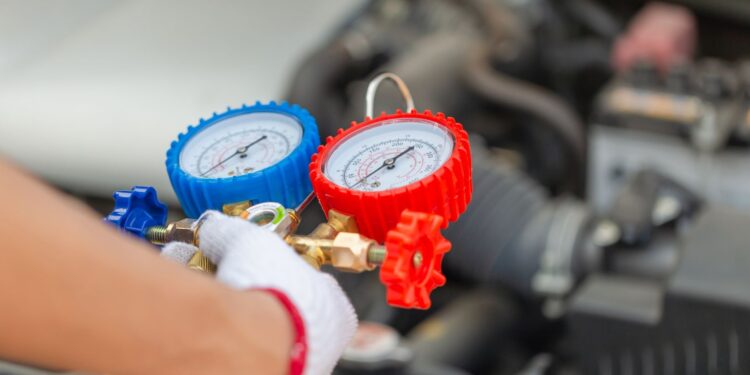How Much Gas Does a Car Use Idling with AC
Wondering how much gas your car consumes while idling with the AC on? It’s a question that many drivers have, especially during hot summer months when they want to keep their cars cool without wasting fuel. In this article, I’ll provide you with some insights into the amount of gas your car uses while idling with the AC running.
Idling refers to when your car is running but not in motion. While it may seem like a harmless activity, idling can actually consume more fuel than you might think. This is particularly true if you keep your air conditioning system on. The AC compressor requires energy from the engine to function properly, and this leads to increased fuel consumption even while your car is stationary.
The Impact of Idling on Fuel Consumption
The Relationship Between Idling and Fuel Consumption
When it comes to fuel consumption, idling your car with the air conditioning (AC) running can have a noticeable impact. Idling refers to when a vehicle is running but not in motion, often while waiting at traffic lights or parked with the engine on. Although it may seem harmless, idling with the AC can consume more fuel than you might expect.
Idling consumes fuel because the engine must continue to run to power essential functions such as the AC compressor, electronics, and other systems. This continuous operation results in a steady drain on your vehicle’s fuel supply. According to studies conducted by the U.S. Department of Energy, an idling car can use between 0.1 and 0.5 gallons of gasoline per hour.
Factors That Influence Fuel Usage While Idling
Several factors come into play when determining how much fuel your car uses while idling with the AC on:
- Engine Size: Larger engines generally consume more fuel than smaller ones during idle due to their higher power output requirements.
- Vehicle Type: Different types of vehicles have varying levels of energy demand for auxiliary systems like air conditioning or electronic devices.
- Temperature Setting: Running the AC at lower temperatures puts additional strain on the engine and increases fuel consumption.
- Idle Time: The longer you leave your car idling with the AC running, the more significant its impact will be on overall fuel consumption.
Understanding these factors can help you make informed decisions about when it’s necessary to keep your engine running while stationary.

Understanding the Role of Air Conditioning
When it comes to understanding how much gas a car uses while idling with the air conditioning (AC) on, it’s important to recognize the impact that AC has on fuel consumption. In this section, I’ll delve into the role of air conditioning in vehicles and its effect on fuel efficiency.
- How does air conditioning work? Air conditioning in cars operates by removing heat from the cabin and releasing it outside. The AC system consists of components such as the compressor, condenser, evaporator, and expansion valve. These parts work together to cool down the air inside your vehicle.
- The impact of air conditioning on fuel consumption It’s worth noting that running your car’s AC does consume additional fuel. This is because the AC system requires energy from your engine to operate effectively. When you turn on the AC, it places an extra load on your engine, leading to increased fuel usage.
- Factors affecting fuel consumption with AC Several factors influence how much gas your car uses while idling with the AC turned on:
- Outside temperature: The hotter it is outside, the harder your AC system needs to work to cool down your vehicle.
- Vehicle size and weight: Larger vehicles typically require more energy to power their AC systems compared to smaller ones.
- Driving conditions: Stop-and-go traffic or driving uphill can increase fuel consumption as well.
- Fuel consumption estimates While there isn’t a fixed number for how much gas a car consumes while idling with AC due to variations in vehicle make and model, experts estimate that turning on your car’s idle could consume around 0.23 gallons (0.87 liters) per hour.
It’s essential to keep in mind that these estimates may vary based on various factors like climate conditions, engine efficiency, and maintenance of both the vehicle and the AC system. Additionally, newer car models often come with more fuel-efficient AC systems.
Understanding the role of air conditioning in your vehicle’s fuel consumption can help you make informed decisions about when to use it and how it impacts your overall mileage. By being mindful of these factors, you can strike a balance between staying comfortable and optimizing fuel efficiency during your drives.














